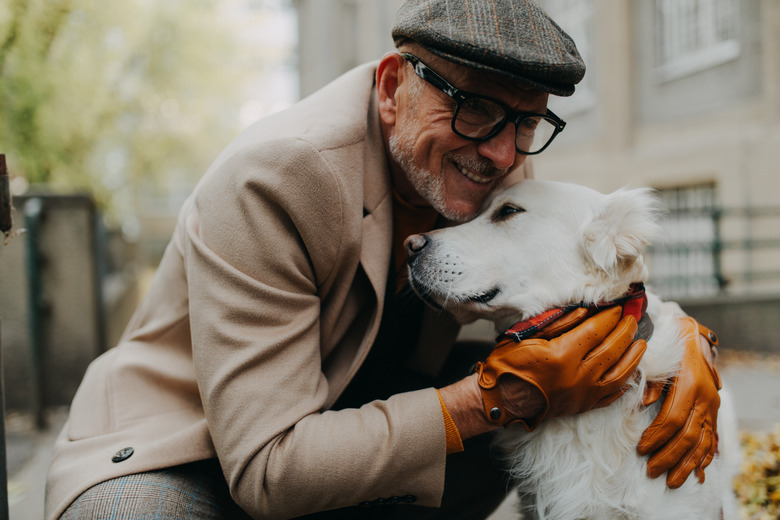Signs That A Dog Has Bonded With You
Once your pet has arrived at his forever home, the steps you take next will ensure a strong bond with your dog. You'll feed him the right kibble in the correct amounts, provide cute toys for him to gnaw, and take him out for regular strolls and playtime in the yard. But you might be wondering how to tell if your puppy has bonded with you? Of course, the goal is reciprocation, and there are several ways to know if your dog has attached to you.
Watch your dog's body language
Watch your dog's body language
The key to the signs your puppy is bonding with you can be found in her body language, and an easy one to spot is a wiggly tail. This motion can mean many things, but if your dog moves her to the right and even swings her hips, you have a happy, friendly pup on your hands. Check your pet's tail position too — if it's in a neutral spot or slightly elevated, a strong bond with your dog is on the way.
Signs your puppy is bonding with you
Signs your puppy is bonding with you
As you work to train and entertain your new pet, consider his behavior along the way, including how he moves when he's around you and the way he plays and interacts. You're on the right track if you notice these six other specific signs your dog is attached to you:
- He shadows you: Is your dog on your heels as you move from room to room, or does he stalk you around the yard no matter where you go? When a pup follows his owner, he's displaying a pack mentality, which is part of his genetic makeup. It can also mean a strong bond with your dog has developed, especially if he gets a good scratch from you when he does it.
- Gifts at your feet: His favorite squeaky snake, the towel you use to dry him off, or possibly a dead mouse — all of these "presents" are your dog's way of sharing his special items with the person he's bonded with the most.
- A soft gaze: Love in your dog's eyes are a sure sign that he fancies you. Look for a relaxed face and pupils that appear normal (not dilated), as this gaze means he's bonded well.
- There's a little pee: Accidents happen when you're training a puppy, but even when he's mastered the pee pads as well as going outside, he may still piddle when you come through the door. Known as submissive urination, the reasons for these accidents are varied, but one is his excitement at seeing you. If it continues, add some extra training sessions into your routine so you can curb this behavior.
- He picks you: No matter how you look, what you're wearing, or the kind of mood you're in, you're the person your dog goes to if he has a choice. This could mean your pup has bonded better with you than your spouse in part because you spend more time walking, feeding, and petting him, or he might prefer your smell to that of your partner. (Who knew?)
- Snuggles are common: Does your furry friend climb up on the sofa next to you when you settle in to watch the hockey game, or does he press his head or lean in close as you offer a scratch around his ears and neck? These are surefire signs your dog has bonded and loves you.
When to get professional help
When to get professional help
If you find your dog isn't warming up to you even with all the training time you put in and the hard work you do to make your dog comfortable at home, ask your veterinarian for advice. He may recommend that you work with a certified animal behaviorist who can help modify and manage your new pet's demeanor. With some helpful hints and targeted training sessions, your dog may soon show signs of a strong bond.
References
- VCA Animal Hospitals: Does My Dog Love Me?
- VCA Animal Hospitals: Interpreting Tail Wags in Dogs
- American Kennel Club: Why Does My Dog Follow Me Everywhere?
- American Kennel Club: Dog Pees When Excited: How to Stop Excitement & Submissive Urination
- American Kennel Club: No Bones About It: Why Does My Dog Prefer My Partner Over Me?
- American Kennel Club: Who You Gonna Call? What to Know About Hiring an Animal Behaviorist
